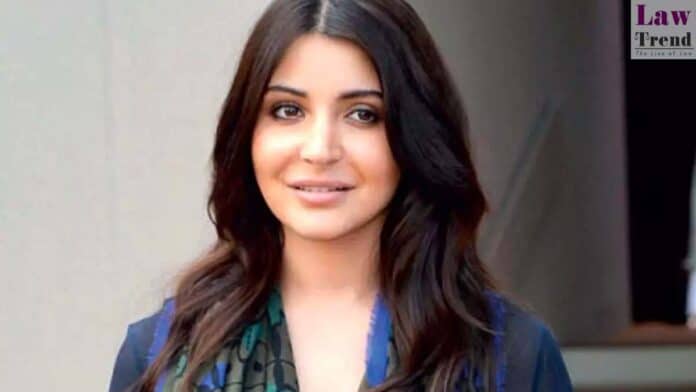Actor Anushka Sharma was the “first owner of copyrights” on her performances at awards functions or stage shows, and therefore liable to pay sales tax when she received income from them, the Sales Tax department has submitted before the Bombay High Court.
As she `transferred’ this copyright to the producers of such events for a fee, it was akin to a sale, it said.
The department on Wednesday filed its affidavits in response to four petitions filed by Sharma.
The Bollywood actor has moved the court challenging four orders passed by the deputy commissioner of Sales Tax demanding tax for assessment years between 2012 to 2016 under the Maharashtra Value Added Tax Act.
Sharma’s contention is that an actor who performs in a film, advertisement or a stage/TV show cannot be called a creator or producer, and hence she or he does not own a copyright on the same.
In its reply affidavits submitted on Wednesday before a division bench of Justices Nitin Jamdar and Abhay Ahuja, the tax authority challenged this view. The bench said it will hear the matter on Thursday.
Anushka Sharma was a performer under the Copyright Act as a copyright is created in her every artistic performance, the Sales Tax department said.
“The petitioner is providing her services and earning income through contract for services and not through contract of services (that is, she is not employed by anybody). Therefore, under the Copyright Act, she is the first owner of the copyrights created in her artistic performance,” it said.
Sharma receives income for her artistic performance from various client companies, and thus along with her artistic performance, the copyright on it also gets transferred to the client, the department said.
Under the MVAT Act, copyrights are intangible goods, therefore their transfer for a consideration is akin to a sale, it added.
“Her copyrights get transferred to the client company for commercial purposes and she receives valuable consideration. Hence it is covered under the definition of Sale under the MVAT Act,” the affidavit said.
The affidavit filed by the Joint Commissioner of Sales Tax also said that the actor’s petition should be dismissed with cost as she had an alternate remedy available under the MVAT Act.
“Under provisions of the MVAT Act, a hierarchy in appeals is provided for. Apart from appeals, there is also provision for review,” it said.
Sharma cannot directly approach the high court with a writ petition, the affidavit said.
The high court interferes only when there is an infringement of fundamental rights, it added.
According to Sharma’s petitions, during the concerned period she performed in films and at award ceremonies as part of a tri-party agreement with her agent, Yashraj Films Pvt Ltd and producers/event organisers.
The assessing officer levied sales tax not on film consideration but on product endorsements and anchoring at award functions, holding that Sharma had transferred her performer’s rights, her petitions said.
For Assessment Year 2012-13, the sales tax demand, inclusive of interest, was Rs 1.2 crore on Rs 12.3 crore consideration and for 2013-14, it was Rs 1.6 crore on a consideration of Rs 17 crore.
The sales tax department passed the orders between 2021 and 2022.
The actor also said there was no provision to file an appeal before the appellate authority unless 10 per cent of the disputed tax is paid.
The assessing officer had erroneously held that by endorsing products and remaining present at award functions, she had acquired copyrights and sold/transferred the same, the petitions said.
Sharma is known for her roles in films like “PK”, “Rab Ne Bana Di Jodi”, “Sultan” and “Zero”, among others.




